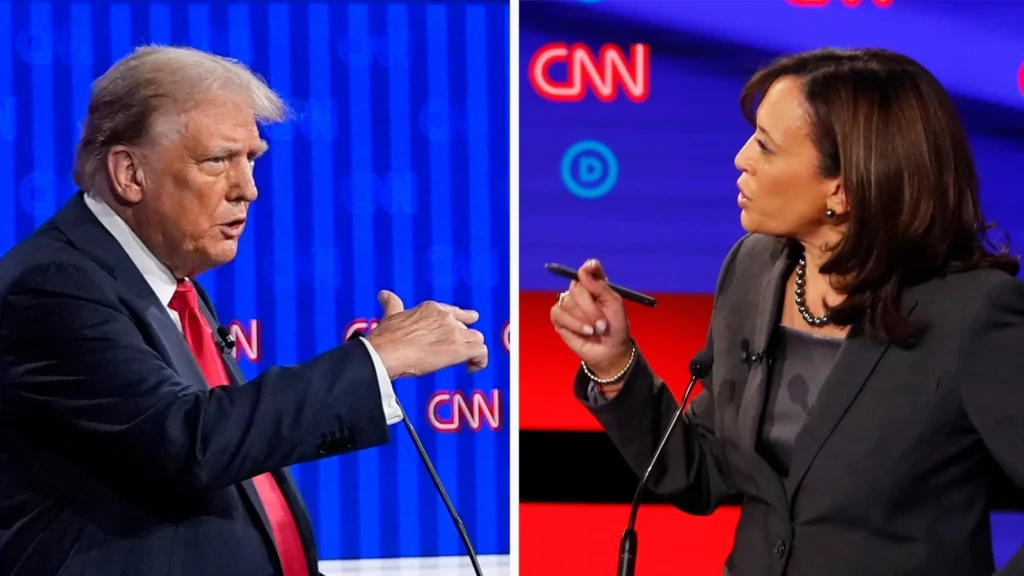Elections are the backbone of any democracy, and the U.S. is no exception. As one of the world’s oldest democracies, the United States has a rich history of electoral processes. However, as we move into the future, significant changes loom on the horizon that could reshape the way we vote, participate, and even think about elections. What will the future of U.S. elections look like? In this article, we’ll dive deep into the potential transformations, challenges, and innovations that are set to influence the next generation of U.S. elections.
Evolution of U.S. Elections
Historical Perspective
To understand where U.S. elections are headed, we need to start by looking back. The U.S. election system has evolved tremendously since the country’s founding. Initially, only white male landowners could vote, but over time, through movements such as women’s suffrage and the Civil Rights Movement, voting rights have expanded to include nearly all citizens.
Major Milestones in U.S. Election History
Significant changes like the 15th Amendment granting African Americans the right to vote and the 19th Amendment enabling women’s suffrage have shaped today’s electoral system. Additionally, the Voting Rights Act of 1965 was a key milestone that addressed racial discrimination at the polls.
The Role of Technology in Elections
Technological advancements have played a massive role in transforming elections. The introduction of electronic voting machines and internet-based campaigns has revolutionized how candidates reach voters. Social media, especially, has become a powerful tool for politicians to connect directly with their audience, bypassing traditional media outlets.
Voting Rights and Expansions
While significant strides have been made to make voting more inclusive, modern debates around voting rights continue. Issues like voter ID laws, gerrymandering, and polling place closures remain contentious. However, there’s hope that future legislation will aim to make voting more accessible to all eligible citizens.
Current Challenges in U.S. Elections
Election Security Concerns
As technology plays a more prominent role, so do concerns about election security. The 2016 and 2020 elections highlighted vulnerabilities such as foreign interference and hacking. Cybersecurity is now a top priority, with efforts focused on preventing breaches and ensuring the integrity of the voting process.
Foreign Interference and Cybersecurity
The rise of cyber threats has forced election officials to rethink how they protect the integrity of votes. Foreign interference, particularly by hostile governments, has become a real and present danger. From phishing attacks on election officials to disinformation campaigns targeting voters, the challenges are manifold.
Misinformation and Disinformation
In the age of social media, misinformation spreads like wildfire. False narratives about candidates, policies, and even the voting process itself can discourage voters and skew public opinion. Combating disinformation has become a key focus, with fact-checking organizations and tech companies working hard to filter out fake news.

The Role of Technology in the Future of U.S. Elections
Blockchain for Election Security
Blockchain, the technology behind cryptocurrencies, could play a major role in securing future elections. Its decentralized nature ensures transparency, making it extremely difficult for
hackers to tamper with election results. Countries like Estonia are already experimenting with blockchain-based voting systems.
Artificial Intelligence in Predicting Election Outcomes
AI could be a game-changer in predicting election results with unprecedented accuracy. By analyzing social media trends, polling data, and voter demographics, AI models can forecast outcomes more precisely than traditional methods. However, ethical concerns around data privacy and manipulation need to be addressed before AI can be fully integrated into the election process.
The Rise of Online and Mobile Voting
Imagine casting your vote from your smartphone. While this might sound like a futuristic dream, it’s closer to reality than you think. Mobile voting could dramatically increase voter turnout by making voting more accessible, especially for those with mobility issues or living in remote areas. However, ensuring security in online voting is a monumental challenge.
The Impact of Social Media and Misinformation
How Social Media Influences Public Opinion
Social media platforms like Facebook, Twitter, and Instagram have become crucial battlegrounds in modern elections. Politicians use these platforms to communicate directly with voters, bypassing traditional media outlets. However, the downside is that misinformation can spread unchecked, influencing public opinion in harmful ways.
Combatting Misinformation and Fake News
To tackle the spread of fake news, social media companies are investing in fact-checking initiatives. These organizations flag misleading posts, ensuring that voters have access to accurate information. Educating voters to critically evaluate the information they consume is also essential in the fight against misinformation.
Regulation of Political Advertising on Social Media
Political ads on social media have come under scrutiny for their lack of transparency. Currently, regulations are inconsistent, allowing false or misleading information to reach millions of voters. Stricter policies are needed to ensure that political advertising on these platforms is fair, transparent, and truthful.
Voting Rights and Inclusivity in the Future
Expanding Voting Rights for Marginalized Communities
In the future, there will likely be a renewed push to make voting more accessible for marginalized groups. This could include reforms aimed at making it easier for people with disabilities, non-English speakers, and low-income voters to participate in elections.
Voting for Non-Citizens?
The debate around non-citizen voting is a contentious one. Some argue that legal immigrants, especially those who contribute significantly to society, should be allowed to vote in local elections. As demographic shifts continue, this debate could become more prominent, potentially reshaping voter eligibility laws.

Lowering the Voting Age
Another significant topic for the future of U.S. elections is whether to lower the voting age to 16. Proponents argue that younger voters are more politically engaged than ever before, especially on issues like climate change and social justice. However, critics question whether 16-year-olds have the maturity and knowledge to make informed voting decisions.
The Role of Mail-in Voting and Absentee Ballots
How Mail-in Voting Increased in Popularity
The COVID-19 pandemic led to a dramatic rise in mail-in voting, as many states sought to minimize in-person voting to reduce the spread of the virus. The convenience of mail-in voting has made it popular among voters, and it’s likely to remain a staple of U.S. elections moving forward.
Future Trends in Absentee Voting
As absentee voting continues to grow in popularity, efforts will likely focus on making it even more accessible. This could include simplifying the process for requesting absentee ballots, as well as ensuring that all mailed votes are counted accurately and securely.
How Climate Change Could Affect Elections
Natural Disasters Disrupting Election Day
Climate change could have a direct impact on the future of U.S. elections. Natural disasters such as hurricanes, wildfires, and floods are becoming more frequent and severe, potentially disrupting Election Day. Election officials may need to prepare for more flexible voting arrangements, including emergency polling stations and extended voting periods.
Climate Change as a Major Election Issue
As climate change continues to affect the lives of millions of Americans, it will undoubtedly become a major focus in future elections. Candidates who prioritize environmental policy are likely to gain traction with voters, especially younger generations who view climate change as one of the most pressing issues of their time.
The Future of Election Campaigning
Digital Campaigns and Virtual Rallies
Campaigning has evolved from handshakes and rallies to tweets and livestreams. With more voters getting their news and information online, digital campaigns are more important than ever. Candidates can now reach millions of people with a single post, making traditional rallies less crucial. Virtual rallies and town halls allow candidates to engage with voters directly, even if they can’t be there in person.
Micro-targeting and Data Analytics
Political campaigns are increasingly relying on data to micro-target voters. By analyzing your social media activity, shopping habits, and even your search history, campaigns can tailor their messages to appeal to your specific interests. While this is effective, it also raises serious ethical concerns about privacy and manipulation.
Grassroots Movements and Community-Based Campaigns
In contrast to high-tech campaigns, grassroots movements have seen a resurgence in recent years. These campaigns rely on local community involvement rather than big-budget ads, and they can be incredibly powerful in driving voter engagement. Expect to see more grassroots efforts in future elections as a response to the growing distrust of political elites and big money in politics.
Will the Electoral College Survive?
Criticism of the Electoral College System
The Electoral College has been a source of controversy for decades. Critics argue that it gives too much power to swing states and can result in a candidate winning the presidency without the popular vote, as happened in 2000 and 2016. Calls to abolish the Electoral College are growing louder, but such a reform would require a constitutional amendment, making it a difficult hurdle to clear.
Popular Vote vs. Electoral Vote Debate
The debate between the Electoral College and a popular vote system has divided the nation. Supporters of the popular vote argue that it would better represent the will of the people, while opponents claim that it could lead to neglect of smaller states. The outcome of this debate could dramatically reshape future presidential elections.
The Future of Election Day: Should It Be a National Holiday?
Why Making Election Day a National Holiday Matters
One of the most discussed ideas for increasing voter turnout is making Election Day a national holiday. This would allow more people, particularly those who work long hours or multiple jobs, to take the time to vote without sacrificing income or job security.
Early Voting and Expanding Voting Windows
Alongside the idea of a national holiday, there’s also growing support for expanding early voting options. By allowing people to vote over several days or weeks, rather than just on Election Day, turnout could be significantly increased, and long lines at polling places could become a thing of the past.
What the Future Holds for Election Transparency
Ensuring Transparency in Vote Counting
One of the biggest challenges facing future elections is ensuring transparency in the vote-counting process. Modernizing outdated systems and implementing new technologies like blockchain could provide voters with real-time updates on the status of their vote, reducing doubts about election integrity.
Public Involvement in Election Oversight
Public trust in elections can be bolstered by increasing citizen involvement in election oversight. Watchdog groups and citizen observers could play a more prominent role in ensuring that elections are conducted fairly and transparently. By fostering more public engagement, election officials can build trust and improve the integrity of the voting process.
How U.S. Elections Could Inspire Global Democracy
U.S. as a Model for Democratic Reform
Despite its flaws, the U.S. election system has long been viewed as a model for other democracies. As the country continues to reform its electoral process, these changes could inspire democratic reforms worldwide. Innovations like online voting, expanded voter rights, and transparent vote-counting systems could become the standard for elections globally.
Global Election Monitoring and Standards
The U.S. has been a leader in international election monitoring, helping other nations conduct free and fair elections. As global collaboration on election integrity grows, the U.S. will likely continue to play a key role in setting international standards for democratic elections.
Conclusion
The future of U.S. elections is both exciting and uncertain. Technological innovations like blockchain and AI promise to make voting more secure and accessible, while ongoing debates about the Electoral College and voter rights will shape the landscape for years to come. As we look ahead, one thing is clear: U.S. elections will continue to evolve, and with them, the very fabric of American democracy.
FAQs
- What Are the Biggest Changes Coming to U.S. Elections?
The biggest changes include advancements in technology such as blockchain for security, increased use of mail-in and absentee voting, and the growing debate over the Electoral College and popular vote system. - How Could Technology Revolutionize Voting?
Technology like online voting, blockchain for secure vote counting, and AI for data analysis could make voting more accessible and elections more secure. - Will We See a National Popular Vote in the Future?
While the debate continues, the shift to a national popular vote is gaining momentum, though it would require major constitutional changes. - How Can U.S. Elections Be More Secure?
By enhancing cybersecurity measures, utilizing blockchain, and combating misinformation, U.S. elections can become more secure and transparent. - Could Climate Change Affect Election Day?
Yes, natural disasters linked to climate change could disrupt voting, potentially leading to more flexible voting options, such as extended voting periods or mail-in ballots.

























